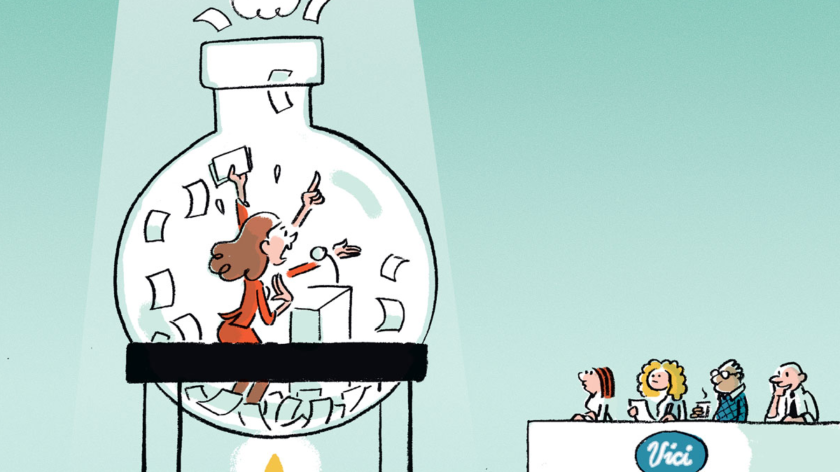‘It’s time for elite sport scholars like Isabelle Weidemann’
-
 Illustratie: Roel Venderbosch
Illustratie: Roel Venderbosch
OPINION - Academia and elite sport are quite similar, thinks Roel Willems, associate professor at the Faculty of Arts. Let’s take an example from Isabelle Weidemann, the Canadian speed skater. ‘A top athlete who also takes time for herself.’
Science as an elite sport: academic Twitter erupted with indignation when Dutch Research Council chair Marcel Levi made that comparison last year. No, we have to get rid of the elite sport image, academia should be collaborative and not hyper-competitive, it’s not about winning prizes but about contributing to knowledge. The polemic came, it was very black and white, and it quickly disappeared.
I was reminded of this when I saw an interview with Isabelle Weidemann, a Canadian speed skater who was a serious challenger to the Dutch women at the Olympic Games in Beijing. In the candid tone characteristic of skaters, she explained to Dutch broadcaster NOS how she had prepared for the Games. She had taken it easy in the summer: little training, recovery, rest. ’I have been kind to myself,’ she said with a broad smile.
She had taken it easy in the summer: little training, recovery, rest.
Nor had she fully committed herself to skating after the summer. She volunteered at the local hospital to help with the coronavirus pandemic. She is above all a person, not just a skater, she explained, because she had so many more interests than sport. And no, she had not told anyone at the hospital that she was going to the Olympics. Another smile. I had never heard of Isabelle Weidemann until that interview, but she seemed like a well-rounded person.
Monomaniacal
Weidemann won bronze, silver and gold medals at the Games. I imagine her whistling as she left Beijing, richer in medals and experience, on her way to new challenges and perhaps another glorious summer.
This is how elite sport can be: a top athlete who takes time for herself and is not only busy with athletic pursuits. But also someone who competes for trophies, stands proud on the highest podium and challenges herself to be the best. Can scholars also be like that? Can they avoid the monomaniacal focus on a single goal while still avoiding the ‘any result will do’ mentality that some see as the antidote to hyper-competition? Let us be scholars like Isabelle Weidemann is a top athlete. Be good, set goals and achieve them. But also be kind to yourself.



